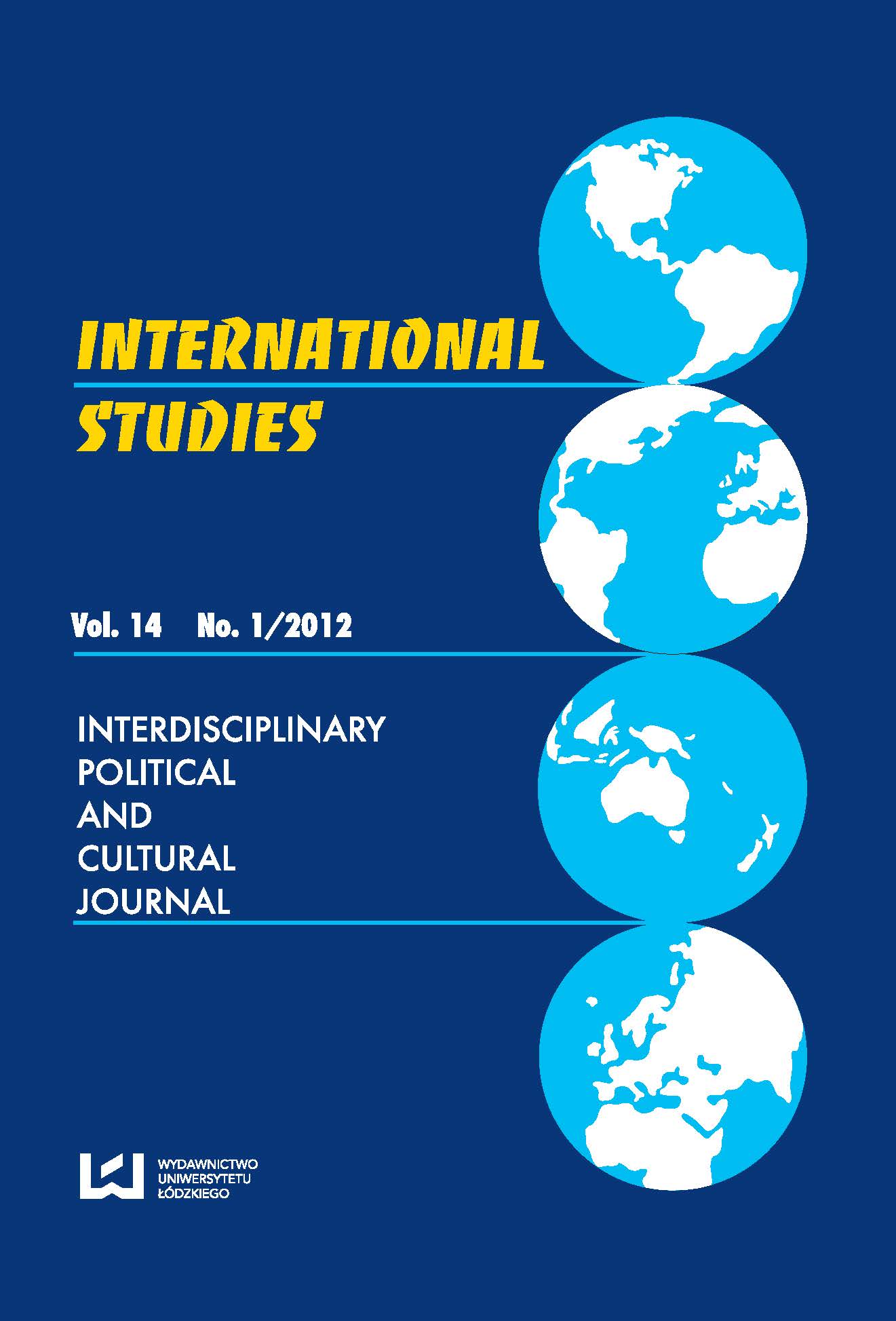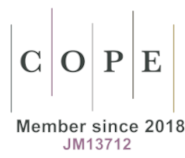Boko Haram "Sharia" Reasoning and Democratic Vision in Pluralist Nigeria
DOI:
https://doi.org/10.2478/v10223-012-0055-zSłowa kluczowe:
terrorism, Islam, Al-Qaeda, education, jihadAbstrakt
In the decade since Al-Qaeda, led by the late Osama Bin Laden, attacked America, there has been a resurgence in the debate about the relationship between religion and politics. The global Islamic terrorist networks and their successful operations against various targets around the globe increasingly draw attention to what constitutes the core values of Islamic extremism: the logic of evangelistic strategy, the import and relevance of its spiritual message and consideration of the composite view of life that does not distinguish between sacred and temporal mandates. Suspicions have been fuelled that Islam is incompatible with modern democratic systems and pluralist outlooks. The real cause of Islamic militancy is at once universal and particular. The Nigerian experience of this radical Islamism–Boko Haram–brings home the once “distant” threat to global peaceful co-existence. While there exist arguments regarding the raison d’etre and means or methods of the operations of Boko Haram, the end has been normative; to achieve a purely religious nationalistic system on the basis of the sharia code of ethics. This paper, therefore, critically analyses the historical and philosophical interpretations of Islamic history constructed as an infallible corpus, and how it has been impacted by the democratic vision in Nigeria. It concludes with a consideration of the possibility and practicability of a liberal system at once free and religious in a pluralist and global society.
Pobrania
Bibliografia
“Islam in Egypt.” Nd. 12th April, 2011 http://en.m.wikipedia.org/wiki/islam-in-Egypt
Zobacz w Google Scholar
Abubakar, M. S. “Islam and Peace-building in West Africa.” Lecture delivered at The Samuel L. and Elizabeth Jodidi Annual Lecture at Weatherhead Center for International Affairs, Harvard University, USA, 9th October, 2011.
Zobacz w Google Scholar
Agbo, A. “The Plot to Stop Jonathan.” TELL 18 (9th May 2011).
Zobacz w Google Scholar
Alanamu, A. S., Muhammed, A. Y. and Adeoye, M. N. “The Role of Technology in Religious Terrorism: Some Matters Arising.” Science in the Perspective of African Religion, Islam & Christianity. Eds. S. O. Oyewole, A. P. Dopamu, I. O. Umejesi, P. O. Amanze, V. A. Alabi, and S. E. Adodo. Ilorin: LSI & NASTRENS, 2010.
Zobacz w Google Scholar
An-An’im, A. A. “Human Rights in the Muslim World.” International Human Rights in Context: Law, Politics and Morals. Eds. H. J. Steiner and P. Alston, Oxford: Oxford University Press, 2000.
Zobacz w Google Scholar
An-An’im, A. A. “The Future of Shariah and the Debate in Northern Nigeria.” Comparative Perspectives on Shariah in Nigeria. Eds. P. Ostien, J. M. Nasir and F. Kogelmann. Ibadan: Spectrum, 2005.
Zobacz w Google Scholar
Awoniyi, S., Igboin, B. O., Ogunleye, A. R., Ayuba, M. A., Ekundayo, L. O and Yunus, A. A. Introduction to the Essential Elements of Religious Studies: Christianity & Islam. Ibadan: Daystar Press, 2007.
Zobacz w Google Scholar
Badaiki, A. D. “Interpretation of Statutes: The Letter or Sprit of the Law?” 39th Inaugural Lecture, Ambrose Alli University, 31st March, 2011.
Zobacz w Google Scholar
Esposito, J. The Islamic Threat: Myth or Reality. Oxford: Oxford University Press, 2002.
Zobacz w Google Scholar
Field, C. D. “Young British Muslims since 9/11: A Composite Attitudinal Profile.” Religion, State & Society 39/2&3 (June/Sept. 2011).
Zobacz w Google Scholar
Igboin, B. O. “The Concomitance of Religious Conflicts in Nigeria: Secularity, Tolerance and Dialogue.” Human Views on God–Variety not Monotony: Essays in Honour of Ade P. Dopamu. Eds. A. K. Chepkwony and P. M. J. Hess. Eldoret: Moi University Press, 2010.
Zobacz w Google Scholar
Ilesanmi, S. O. “Sharia Reasoning, Political Legitimacy, and Democratic Vision.” Journal of Church and State 53/1 (2011): 27-36.
Zobacz w Google Scholar
Johnson, J. T. “Tracing the Contours of the Jihad of Individual Duty.” Journal of Church and State 53/1 (2011): 37-49.
Zobacz w Google Scholar
Kelsay, J. Arguing the Just War in Islam. Cambridge: Harvard University Press, 2007.
Zobacz w Google Scholar
Kukah, M. H. “Boko Haram: Some Reflections on Causes and Effects.” Boko Haram: Religious Conflicts and Dialogue Initiatives in Nigeria. Eds. S. O. Anyanwu, and I. Nwanaju, Owerri: Edu-Edy, 2010, 1-6.
Zobacz w Google Scholar
Kukah, M. H. Human Rights in Nigeria: Hopes and Hindrances. Aachen: Missio, 2003.
Zobacz w Google Scholar
Lambert, R. “The London Partnerships: An Insider’s Analysis of Legitimacy and Effectiveness.” PhD diss. University of Exeter, 2010.
Zobacz w Google Scholar
Lee, K. S. “Building Intergroup Relations after September 11.” ASAP: Analyses of Social Issues and Public Policy 2/1 (2002): 131-142.
Zobacz w Google Scholar
Mandel, D. R. “Evil and the Instigation of Collective Violence.” ASAP: Analyses of Social Issues and Public Policy 2/1 (2002): 101-109.
Zobacz w Google Scholar
McDonald, L. Z. “Securing Identities, Resisting Terror: Muslim Youth Work in the UK and its Implications for Security.” Religion, State & Society 39/2&3 (June/Sept. 2011): 77-189.
Zobacz w Google Scholar
Mvumbi, F. N. Journey into Islam. Nairobi: Paulines, 2008.
Zobacz w Google Scholar
Ogunbanjo, B. “Political Islam and the West: A New Cold War or Convergence?” ORITA: Ibadan Journal of Religious Studies, XXXV/1&2 (June & Dec. 2003): 110.
Zobacz w Google Scholar
Oh, I. “On Democracy, Violence, and the Promise of Islam.” Journal of Church and State, 53/1 (2011): 50-58.
Zobacz w Google Scholar
Ojo, M. A. “When Did Things fall Apart?: Reflection on Religion, Spirituality and Sociopolitical Experience in Contemporary Nigeria.” Religion and Nigeria Today. Ed. O. Odey, Ilorin: Nigerian Association for the Study of Religions, 2010.
Zobacz w Google Scholar
Olu-Owolabi, K. “My People Perish for lack of Philosophy.” Inaugural Lecture, University of Ibadan, 11th August, 2011.
Zobacz w Google Scholar
Onaiyekan, J. Dividends of Religion in Nigeria. Ilorin: Department of Religions, 2011.
Zobacz w Google Scholar
Osasona, J. O. “Islam and National Development: An Examination of the Nigerian Situation.” Human and Religious Development in Nigeria: Theoretical and Methodological Issues. Ed. J. A. Onimhawo, Ibadan: Salmos Publishers, 2011.
Zobacz w Google Scholar
Spalek, B. “‘New Terrorism’ and Crime Prevention Initiatives Involving Muslim Young in the UK: Research and Policy Contexts.” Religion, State & Society, 39/2&3 (June/Sept. 2011): 194.
Zobacz w Google Scholar
Spalek, B. “Community Policing, Trust and Muslim Communities in relation to New Terrorism.” Politics & Policy 38/4 (2010): 789-815.
Zobacz w Google Scholar
Ukpokolo, I. “Of Terrorism and Rationality: In Search of Epistemological Foundation.” LUMINA 21/1 (March 2010).
Zobacz w Google Scholar
Ukwuegbu, B. O. “What Has Religion Got to Do with the So-called ‘Religious Conflicts’?” The Nigerian Journal of Theology 22 (June 2008): 31.
Zobacz w Google Scholar
Umejesi, I. O. “Hermeneutics of Religious Crises in Contemporary Nigeria: Oriental Philosophy of Religious Tolerance as a Recipe for Peace.” Human and Religious Development in Nigeria: Theoretical and Methodological Issues. Ed. J. A. Onimhawo, Ibadan: Salmos Publishers, 2011, 94-95.
Zobacz w Google Scholar
Umejesi, I. O. “Rule of Law as a Panacea to Religious Crises in Nigeria.” Human Views on God–Variety not Monotony: Essays in Honour of Ade P. Dopamu. Eds. A. K. Chepkwony and P. M. J. Hess, Eldoret: Moi University Press, 2010.
Zobacz w Google Scholar
Yanay, N. “Understanding Collective Hatred.” ASAP: Analyses of Social Issues and Public Policy 2/1 (2002): 53-60.
Zobacz w Google Scholar
Zablocki, B. and Looney, J. A. “Research on New Religious Movements in the post-9/11 World.” New Religious Movements in the 21st Century: Legal, Political, and Social Challenges in Global Perspective. Eds. P. C. Lucas, and T. Robbins, New York: Routledge, 2004.
Zobacz w Google Scholar
Pobrania
Opublikowane
Jak cytować
Numer
Dział
Licencja

Utwór dostępny jest na licencji Creative Commons Uznanie autorstwa – Użycie niekomercyjne – Bez utworów zależnych 4.0 Międzynarodowe.

















